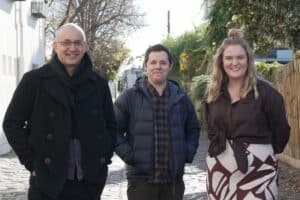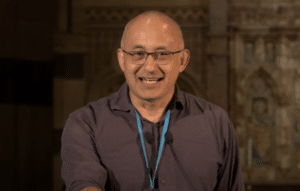
Jenan Taylor
27 September 2023
Non-Indigenous Australians must be respectful of First Nations people’s mental, emotional and spiritual suffering, whatever the outcome of the Voice referendum, Christian leaders say.
It comes amid growing concerns that the debate around the Voice has contributed to an uptick in adverse health and wellbeing effects for Indigenous people, and fuelled racism towards them.
The National Aboriginal Community Controlled Health Organisation recently reported heightened psychological distress among First Nations people, a rise in their calls for help, and of their use of social, emotional and mental health support services.
Indigenous Christian leaders say whatever the debate outcome, helping First Nations people and communities deal with this distress, and the path toward forging good relationships with them, will necessitate respect and diligence.
Read more: Faith leaders urge Christians to side-step public noise on Voice
National Aboriginal Bishop Chris McLeod said the Voice debate had revealed the ugly side of Australia and its politics, and that meant that there was a lot of hard work to be done.
Bishop McLeod said it drained many Indigenous people emotionally, mentally and spiritually, especially with aspects of the No campaign raising issues around identity, history and truth-telling.
He said if the referendum resulted in a no vote, they would feel depressed and disillusioned, find it hard to trust people, and were likely to pull back from relationships.
Even if it was a yes outcome, there might still be many Indigenous people who would feel that they have not been listened to, Bishop McLeod said.
He said the Church would walk gently with the First Nations communities and continue the path to Makarrata.
But he said the Church would need to seriously contemplate how it spoke the truth in love to those who engaged in a win at all costs approach.
Read more: Voice a matter of justice, reconciliation: Christian leaders
Retired Anglican priest the Reverend Janet Turpie-Johnstone said it was important to understand that trauma was multilayered, and that the First Nations people’s distress was not a problem of their making.
A Mullum Mullum Indigenous Gathering Place leader, Ms Turpie-Johnstone said their trauma was a relational issue and its genesis was in historical government policies against Aboriginal people. These had then institutionalised and systematised the continuing racism against them.
While people could be generous, gracious and supportive of each other, the key to starting healthier and healing relationships with others was for them to understand themselves, Ms Turpie-Johnstone said.
She said for non-Indigenous Australians that might mean seeing how their own values stood in relation to what was important to Indigenous people, including their history, culture and relationship to the land.
“[Non-Indigenous people] need to learn their own stories of where they’ve come from, why they chose to leave, and where they’ve been placed, and then start to build on that. It’s not about fixing an Aboriginal problem. It’s about how you start to heal your own issues and being mindful of what has been imposed on First Nations people,” Ms Turpie-Johnstone said.
For more faith news, follow The Melbourne Anglican on Facebook, Instagram, or subscribe to our weekly emails.






